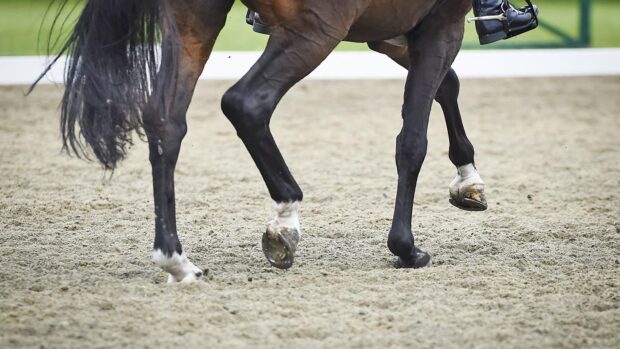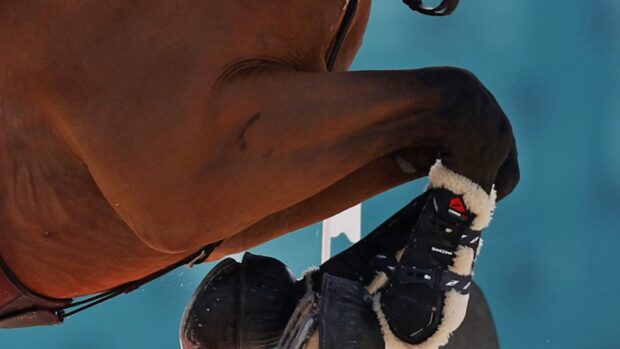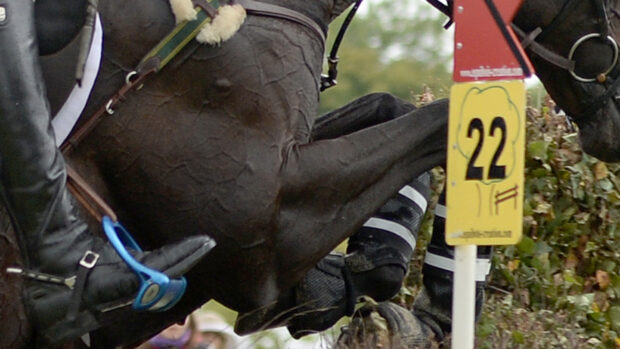The new Olympic format did not serve riders, horses or the global image of the sport – and we must not compromise horse welfare to have more flags at the Games.
These are some of the opinions submitted by national federations (NFs) to the FEI, as it conducts its planned review of the format that was brought in for this summer’s Olympics.
Of the 17 federations that responded by the deadline of 15 October, some commented on the different qualification pathways to the Games and some on the overall format. Of the eight that gave an opinion on the latter, all supported a return to four-combination teams.
British Equestrian had commented neither on qualification nor the format by the deadline, but said in the feedback document that it would “comment in due course” on the latter.
Horse Sport Ireland asked that a “proactive discussion” be held at the FEI general assembly (14–17 November) on the qualifying procedures.
On the format, it added: “The format did not serve the athletes, the horses or the global image of equestrian sport very well. I believe all NFs wish to see equestrian sport as a brand leader, an exciting and vibrant sport to be involved in, so unique in every sense, while maintaining the core values of horse first, perform as one, fair and equal, for today and tomorrow.”
The Irish proposed four-rider teams in the first round of jumping, with three in the final and the team competition before the individual, as at previous Games. They also proposed four in dressage, which is “of particular importance to NFs such as ourselves who wish to send a travelling reserve with a drop score”.
The federation said the three-rider format for eventing was “not well received by owners, athletes and chefs d’equipe”, adding that it caused issues for federations on selecting and managing the reserve “which asks a lot for a horse and athlete combination to be on standby the whole time for a competition, while also being excluded from the Olympic Village, and not to be called an Olympian”.
“In this time of mental health awareness, it is a step in the wrong direction,” the federation said.
The Dutch and Swiss federations both supported running the team jumping before the individual, as well as four to a team in all disciplines. US Equestrian said teams of four with a drop score are “essential for the good of the sport and horse welfare, especially in jumping and eventing. We believe this actually benefits weaker nations.”
The German federation said four-rider teams are kinder to horses as there is “less pressure on a rider if the combination makes a mistake or the rider feels he should not continue a bad round”.
“In a team of three, riders are at risk to overstrain their horses if they know they must complete the round because otherwise their country will be out,” the federation said. “In a four-rider format, nations could still continue in the competition if a combination was retired or eliminated. We must not compromise horse welfare for the sake of having more flags.”
The French said its support for four-rider teams was strengthened by Tokyo, where it said there were “more drifts with horse welfare issues” than previous Games, including combinations who were below safety standards.
“By underestimating the singular animal factor within our sport format, we are threatening the place of our sport in the Olympic movement and in society,” the federation said. “We support more flags, as long as it is not compromising horse welfare – and that all participants qualify on fair worldwide procedures to ensure safety and to have the best of our sport at the olympics.
“To increase the number of flags, we would recommend to prioritise the best individuals from upcoming nations, instead of having teams not fully composed of safe enough combinations.”
On qualification, Equestrian Australia pointed out that some of the best showjumpers from stronger regions did not get to the Games, whereas riders from weaker regions “have it easier in this respect”.
“Nevertheless, certain minimum criteria should be fulfilled, so that an Olympic-size course can be managed in a way that is suitable for the horse,” the federation added.
“If these minimum criteria are not met, the places should go to the individual quota places, the overall FEI Olympic ranking, so that a minimum level of equestrian quality is also maintained in terms of animal welfare.”
The Germans suggested fewer teams, of four, to keep to a smaller total of combinations.
The FEI technical committees will review comments received by 15 October and discuss them with the FEI board. The outcome will be sent to federations “as soon as possible ahead of the general assembly”. A discussion on the proposed Paris 2024 qualification system will take place at the assembly.
You might also be interested in:

Format debrief as key aim is to keep horses at the Olympics

New three-rider format causes ‘carnage’ in Olympic showjumping, say riders

Three riders for Olympic teams confirmed
The drop score will be discarded and changes brought in to each discipline, voted in at the FEI general assembly
Horse & Hound magazine, out every Thursday, is packed with all the latest news and reports, as well as interviews, specials, nostalgia, vet and training advice. Find how you can enjoy the magazine delivered to your door every week, plus options to upgrade your subscription to access our online service that brings you breaking news and reports as well as other benefits.




